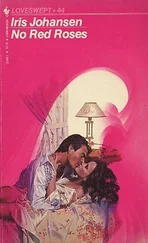Iris Murdoch - An Unofficial rose
Здесь есть возможность читать онлайн «Iris Murdoch - An Unofficial rose» весь текст электронной книги совершенно бесплатно (целиком полную версию без сокращений). В некоторых случаях можно слушать аудио, скачать через торрент в формате fb2 и присутствует краткое содержание. Жанр: Классическая проза, на английском языке. Описание произведения, (предисловие) а так же отзывы посетителей доступны на портале библиотеки ЛибКат.
- Название:An Unofficial rose
- Автор:
- Жанр:
- Год:неизвестен
- ISBN:нет данных
- Рейтинг книги:4 / 5. Голосов: 2
-
Избранное:Добавить в избранное
- Отзывы:
-
Ваша оценка:
- 80
- 1
- 2
- 3
- 4
- 5
An Unofficial rose: краткое содержание, описание и аннотация
Предлагаем к чтению аннотацию, описание, краткое содержание или предисловие (зависит от того, что написал сам автор книги «An Unofficial rose»). Если вы не нашли необходимую информацию о книге — напишите в комментариях, мы постараемся отыскать её.
An Unofficial rose — читать онлайн бесплатно полную книгу (весь текст) целиком
Ниже представлен текст книги, разбитый по страницам. Система сохранения места последней прочитанной страницы, позволяет с удобством читать онлайн бесплатно книгу «An Unofficial rose», без необходимости каждый раз заново искать на чём Вы остановились. Поставьте закладку, и сможете в любой момент перейти на страницу, на которой закончили чтение.
Интервал:
Закладка:
Felix had written. He had written such a quiet kindly gentlemanly letter that Ann had wondered for a moment whether he were not perhaps relieved. Perhaps he was glad really to have tried and. failed and to be able to turn with a clear heart elsewhere. Yet she could not credit this. The gentleness was a part of Felix, a part that made her love him, perhaps also a part that made her lose him. She recalled his cry, 'I've become, with you, invisible. He too, alas, was one of the invisible ones. She had opened his letter trembling with a scarcely rational hope that he would, on reflection, not accept her refusal, that he would again press her. She had read through his resigned considerate message and burnt it at once. She could not now remember its exact wording and did not try. How much had Felix really wanted her? She would never know. But Felix would certainly survive.
Ann pressed along the path between the gallicas, her Wellingtons deep in the wet grass which needed its next mowing. She noted with an expert eye which buds would be ready, in three days' time, for her flower-arrangement at the Women's Institute. Perhaps it was just as well that Clare would miss the competition this year; she never became resigned to not winning. Ann reached the bonfire and set the bucket down. The big mound of foliage and grass cuttings occupied the corner of the nursery site, and beyond the wire fence the fields sloped down towards the Marsh. There was a distant sound of folded sheep. The near sky was paling to a watery grey and there was a segment of rainbow with its foot on Brenzett church tower. Further off, towards Dungeness, were dark clouds and a shadowy curtain of rain. But the nursery slope lightened.
The bonfire was wet, but Ann hollowed out its ashy centre as she had done a hundred times before and began to stuff her waste paper in, taking it in cautious handfuls from under the weighty stones so that it should not blow about in the brisk wind. When she had packed in enough she rearranged the foliage on top of it, poured on a little paraffin and tried to strike a match. It took her some time to get one alight, and she cupped it down to the fringe of the paper. When the paper was well afire she gave the structure an adjusting kick with her Wellington.
Something seemed to burst, and a stream of smaller torn-up papery fragments descended from one side of the bonfire. Absently Ann began to boot them back in again. Then she saw that they were fragments of photographs and she stooped to pick one up. It was a piece of a. photograph of Felix. She stared at the little image of his face, upset and. startled by the coincidence. Then she picked up another fragment. It was also a piece of a-photograph of Felix. She picked up another. The fire was blazing up. Ann kicked back the flaming paper and the already smouldering branches and tried to pull out whatever was not already alight. She burnt her hands, but rescued and threw clear a half-charred envelope and the heap of pieces which seemed to have been coming out of it; and as the wind seized and began to scatter them, she threw herself on top of them on the grass. Half sitting half lying on her discovery she began to turn the fragments over, trying to shield them from the wind at the same time.
There was a lot of stuff, some photographs, some newspaper cuttings, some letters, and as far as she could see, as with a kind of horror she turned them over, they all related to Felix. She wondered if she were dreaming or the victim of some devil's trick. She recognized bits of two snapshots which she had bitterly missed from her album. She deciphered yellow fragments of wartime newspapers. With trembling hands she held them together, the jagged dismembered pieces of ghostly occasions, the vanished moments, the dear looks and smiles and caught familiar glances. The pieces of manuscript too were all in his writing, they seemed to be letters. Then, as she began clumsily to assemble them, she realized what letters they were. And with that she realized everything. My dear Miranda — Ann stood up. Her shoulder and side were soaked by the wet grass.
Automatically she brushed herself down. The wind, coming in a sudden rainy gust, took the heap of fragments and tossed it into the air and began to scatter it up the hillside among the roses. The pale scraps chased away in every direction, racing along the grass, somersaulting across the flower beds, flying even as far as the road and coming to rest in muddy pools and against heaps of manure and among thorny branches or being carried off upon the wheels of passing cars. Ann made an ineffectual gesture to stop them and then let them go. The image of Felix was dispersed and scattered.
Ann put the paraffin tin into the empty bucket and began slowly to ascend the hill. It was drizzling a little now and the rainbow had gone. She turned up the collar of her coat and smoothed back the damp hair. About half-way up the hill she noticed something stirring under a big arching bush of Stanwell Perpetual. There was an animal under the bush. She put down the bucket and peered and saw that it was Hatfield, a thin and rather bedraggled and wild-looking Hatfield. She began to entice him. He cowered and then retreated a little between the bushes. Ann followed, her coat dragging on the thorns. She crouched down and called to him. After staring suspiciously he approached a little and she was able to pounce on him before he again took flight. She stumbled out from among the roses with the cat struggling and growling in her arms.
By the time she reached the kitchen the rain was heavier and her hair was plastered to her head. She shut the kitchen door behind her with her foot and released Hatfield who shook himself and then sat down looking damp and puzzled in his old place in front of the Aga. Ann rubbed her hair with a towel. So Miranda had loved Felix. Why had she not seen it? But she could not have seen what she could not have conceived of. And yet why was it so inconceivable? Miranda had loved him and had, Ann could now work it out in detail, acted accordingly. Ann felt no resentment; she felt infinitely sorry for her daughter and in a strange way impressed. And she blamed herself for being insensitive and blind.
She fetched out some cold meat and a bowl of milk for Hatfield, which he sniffed over and then delicately consumed. He stretched himself out on the flag-stones. Ann sat down with the cat at her feet. So the act had been Miranda's, it had indeed all happened' on another plane'. She had had no act at all of her own, she had been part bf someone else's scheme, a thought, almost, in someone else's mind. And yet surely this was not right either. She shook her head. Had she acted, or had her act been stolen from her? Can our acts be stolen from us? She was certainly not good at thinking about such matters, she had lived in unconsciousness too long. Then she recalled how Douglas Swann had said to her that 'being good is a state of unconsciousness', and she shook her head again.
She leaned down and stroked the cat. She had lived in unconsciousness and doubtless she would again, for it was her nature. She was not framed for recognizing, let alone for grasping her own felicity. In the end perhaps, for her, not knowing was better than knowing. Felix would never understand either. But to be understood is not a human right. Even to understand oneself is not a human right. She would leave the vain pursuit of the elusive act. What had happened had happened; and even if it were indeed the case that some obscure degenerate love for Randall had moved her, had it almost seemed frightened her away from what was rational and beautiful and free, she could not feel any clear remorse or regret. Felix would be well, Felix would be very well, without her. Still less did she feel any inclination to call her obsession by any grander name. Not to know was best, to forget was best. But it would not be Randall or Felix that she would forget but only herself, only what she had done and what it meant.
Читать дальшеИнтервал:
Закладка:
Похожие книги на «An Unofficial rose»
Представляем Вашему вниманию похожие книги на «An Unofficial rose» списком для выбора. Мы отобрали схожую по названию и смыслу литературу в надежде предоставить читателям больше вариантов отыскать новые, интересные, ещё непрочитанные произведения.
Обсуждение, отзывы о книге «An Unofficial rose» и просто собственные мнения читателей. Оставьте ваши комментарии, напишите, что Вы думаете о произведении, его смысле или главных героях. Укажите что конкретно понравилось, а что нет, и почему Вы так считаете.










